Tokyo Albinism ConferenceExperts address issues faced by persons with albinism in sub-Saharan Africa
The Nippon Foundation, in close collaboration with the United Nations Independent Expert on the enjoyment of human rights by persons with albinism, held a conference on November 9 dealing with human rights issues faced by persons with albinism, focusing on sub-Saharan Africa. The conference, held at The Nippon Foundation headquarters in Tokyo, sought to raise awareness of the issue in Japan, generate discussion, and promote greater international collaboration to prevent the human rights abuses suffered by persons with albinism.
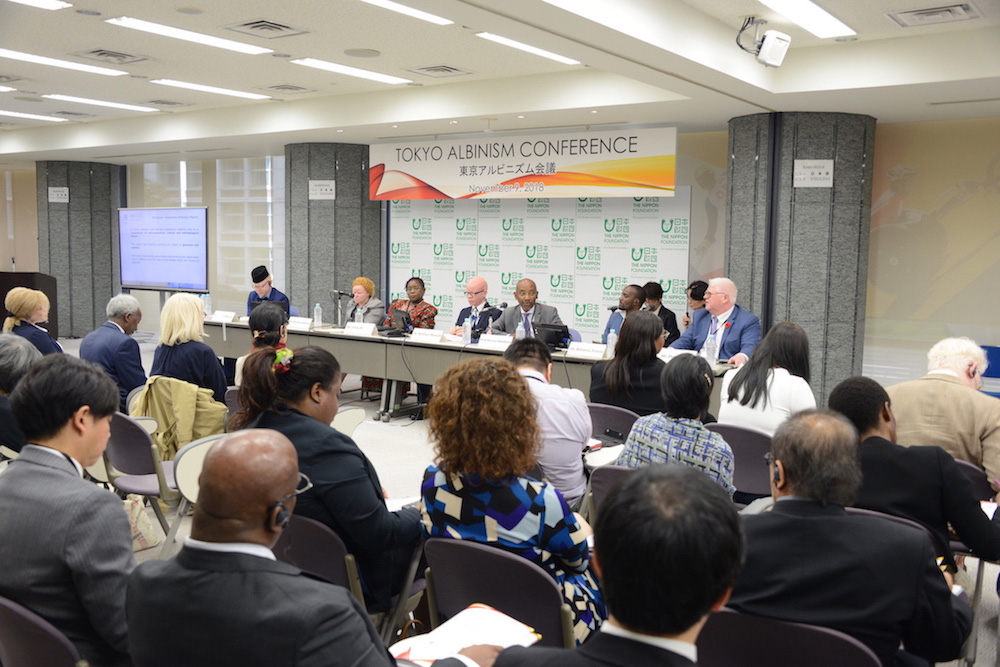
Opening the conference, The Nippon Foundation Chairman Yohei Sasakawa welcomed the more than 100 people attending. He noted that he became aware of the issues faced by persons with albinism in the course of his work to eliminate both the disease of leprosy and associated stigma and prejudice. In both cases, stigma and prejudice are the result of inaccurate information, and although the issues faced by persons affected by leprosy and persons with albinism require different specific solutions, awareness of both diseases is relatively low in Japan today. This is what led to his interest in this issue and the holding of this conference.
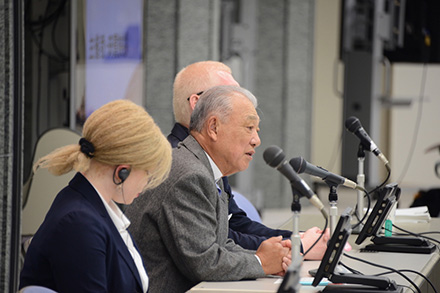
Mr. Sasakawa was followed by Yasuo Yabuki, an assistant professor at Rikkyo University who works with the Japanese Albinism Network. Professor Yabuki shared experiences faced by Japanese persons with albinism, including feeling it necessary or being requested by their company or school to dye their hair black, and students not being allowed to wear hats or sunglasses, or use sunscreen, because of school rules prohibiting those items.
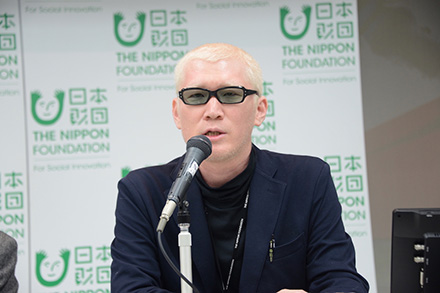
Speaking next, Ikponwosa Ero, the United Nations Independent Expert on the enjoyment of human rights by persons with albinism, gave an overview of albinism including the medical and social issues persons with albinism face. Albinism occurs worldwide. In North America and Europe, 1 in 20,000 people have the condition, but in certain sub-Saharan African countries like Tanzania, for instance, the incidence is 1 in 1,400 people. Persons with albinism tend to have weak vision, and sensitivity to UV rays means that skin cancer is the leading cause of death for persons with albinism – often before the age of 40.
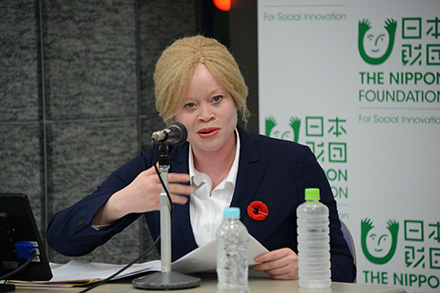
There is also a spectrum of discrimination that ranges from name-calling to physical attacks resulting in death. Ms. Ero noted that there have been 700 reported attacks in 28 African countries since 2006, involving mutilation, murder, ritual rape, and grave robberies. Many more cases are believed to exist, but have not been reported because of involvement by family or community members. These attacks are triggered by black market demand for the blood and body parts of persons with albinism, based on superstitions that have led to their use in witchcraft practices. She described a vicious cycle of life for persons with albinism, from abandonment at birth to discrimination in education and employment, resulting in poverty followed by skin cancer and death.
Ms. Ero introduced the Regional Action Plan (RAP) being promoted by the organization Action on Albinism in response to physical attacks and mutilation. The RAP consists of four sets of measures: Prevention, Protection, Accountability, and Equality and non-discrimination.
These remarks were followed by a panel discussion, “Realities: Our Experiences,” moderated by Isaac Mwaura, the first member of Kenya’s Parliament living with albinism and national coordinator of the Albinism Society of Kenya. The panel featured Mariamu Staford, who was denied an education because she was born with albinism, and as a young adult lost her arms and unborn baby in a machete attack by four men, including a neighbor. She subsequently received training in knitting and now operates her own business knitting sweaters and scarfs. In September, she participated in Climb for Albinism as one of a group of six African women with albinism who climbed Mt. Kilimanjaro to raise awareness of the issues they face. Her next ambition is to become a successful businessperson and teach people with albinism how to be confident and build self-esteem, and how to become entrepreneurs so they can become independent.
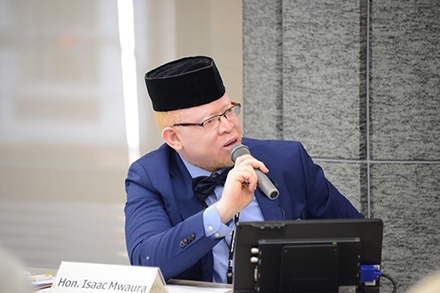
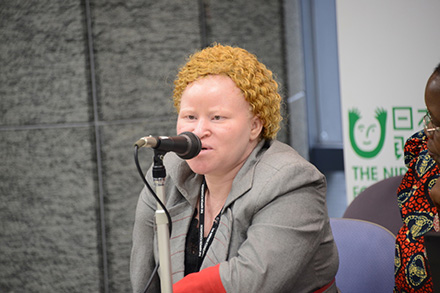
Vicky Ntetema reported undercover for the BBC on attacks against persons with albinism until her identity was discovered by traffickers. She noted that one of the major hurdles persons with albinism face in Africa has been authorities’ lack of response when attacks occur, because politicians and government officials sometimes visit witch doctors themselves, and the African tradition is to keep unflattering news “within the home” rather than reporting it to the outside world. She added, however, that with people with albinism having been appointed to a senior government post and elected to parliament in recent years, the profile and visibility of persons with albinism in Tanzania is improving.
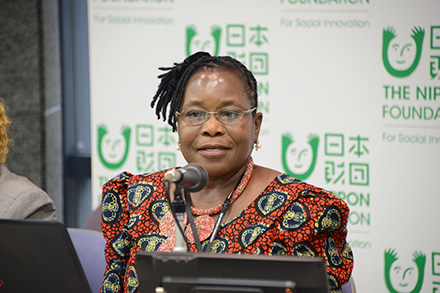
The next speakers discussed the situations faced by persons with albinism in Mozambique and Malawi. The last remarks were from Peter Ash, founder and CEO of Under The Same Sun (UTSS), who discussed international initiatives. With a professional background in both church ministry and business, and also as a person with albinism, Mr. Ash founded UTSS in 2008 as a faith-based NGO advocating for persons with albinism in Tanzania with a focus on education and advocacy. He described UTSS’s activities, and noted that students supported by UTSS are performing at the same level, and often at a higher one, than their peers.
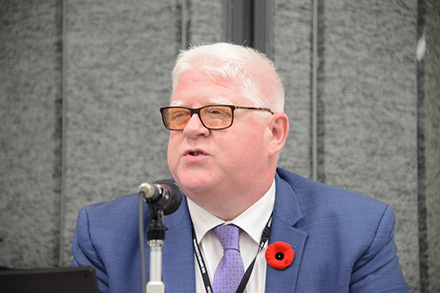

The lunch break featured a concert by Connie Chiu, a jazz singer with albinism. Sessions continued through the afternoon, and in the evening a reception was held to welcome Patricia Willocq, a photographer whose exhibition “White Ebony” was on display in the lobby of The Nippon Zaidan Building throughout the week.
Related News
Contact
Communications Department
The Nippon Foundation
- E-mail:cc@ps.nippon-foundation.or.jp



